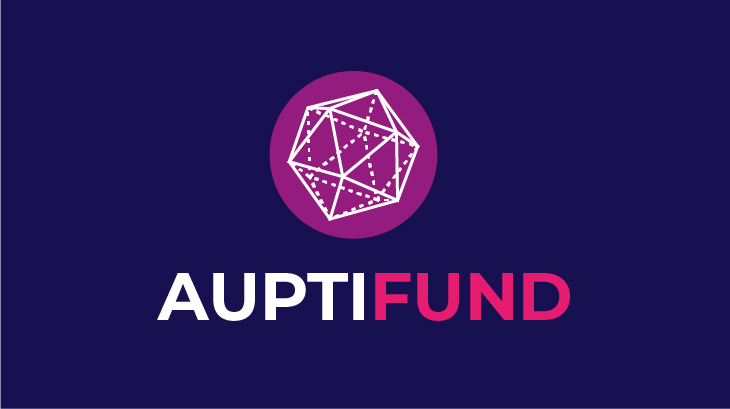What is a Fund?
A Fund is….actually kind of hard to define.
The word ‘fund’ can be seen with surprising frequency. It’s used to describe structures like pension funds, mutual funds, trust funds, sovereign wealth funds, exchange-traded funds, private equity funds and hedge funds. All of these have the word ‘fund’ in common, but differ on many, many other levels.
Most countries have their own definition of a ‘fund’ and might separate that into different types, or even sub-types, of fund. That means there’s no one universal definition of a ‘fund’. However, at the risk of oversimplifying things, definitions of ‘fund’ usually touch on some or all of the following elements:
- Pooling money:
A fund collects money (or other assets) from more than one person and combines this into a single ‘pool’ of money. That pool of money is then used to invest.
- Spreading risk:
A fund invests in more than one asset. Investing in only one asset is risky. Investing in a diversified portfolio helps to spread and reduce the fund’s overall risk.
- External management:
A fund is not managed by its investors, or even by its own management. Instead, a fund (usually) appoints an external third party service provider, e.g. a fund manager. Funds are typically launched by the fund manager that ultimately manages them, meaning the line is often blurred between ‘fund’ and ‘fund manager’. However, these are two different entities with two different purposes. The fund manager employees a team of investment professionals and offers fund management services. The fund is simply a vehicle to pool money from investors and own a portfolio of assets.
The above touches on the general concept of a fund. In practice, a fund is some kind of entity or legal arrangement with those characteristics. Funds are usually structured as a company, partnership or trust, and there are many reasons why one may be chosen over the other.
For the sake of this short article, we’ll simplify things and settle on the following definition:
A “Fund” is a legal entity or arrangement that pools money from investors, spreads risk across a portfolio of investments, and is managed by an external manager.
Who uses Funds and why?
Funds are used by all kinds of financial institutions, particularly fund managers.
Why? To make money – or at least try to make money – for both the investors and those managing the Fund.
Those managing the Fund, typically a fund manager, are investment professionals with the knowledge, experience and skillset to make successful investments. That’s their day job and they get paid a salary to do it. In addition to their salary, they also get a ‘bonus’ if they do their job well, i.e. if their investments achieve a positive return. It’s this ‘bonus’ – also known as carried interest or a performance fee – that can make fund management a very lucrative profession.
The investors in a Fund have the money, but typically lack the time or expertise, to actively invest. By putting their money into a Fund, investors are getting the fund manager to do the heavy lifting for them. They will (indirectly) pay for the fund management services but, if they chose the right fund manager, they’ll share in the upside of investments that they would otherwise not have been able to access or make themselves.
What is AuptiFund?
The AuptiFund is a Fund created using Auptimate’s online structuring tool. It is:
- Customisable by the user.
- Unique to a specific user’s needs.
- Cloud-native with all documents automatically generated, signed and stored online.
- Launched online in a matter of minutes.
- Managed via Auptimate’s online platform.
Auptimate handles an AuptiFund’s incorporation, legal documents, investor onboarding, administration, accounting, tax, compliance, investor communications and other back-office functions – all on Auptimate’s online platform. We give fund managers the peace of mind to focus on what they do best: invest.
AuptiFunds are typically formed as a variable capital company (or ‘VCC’) incorporated in Singapore. However, we work with customers who are interested in different types of entity, whether in Singapore or elsewhere in the world (e.g. in the Cayman Islands).
What are the key terms of an AuptiFund?
Number of investors
Unlimited*
Type of investors
Any*
Number of investments
Multiple
Type of investments
Determined by the fund’s investment strategy
Number of closings
Multiple
Management fee
Yes, typically between 1% and 3%
Performance fee
Yes, typically between 10% and 30%
Key decision maker
Fund Manager
Maximum fundraise
Not applicable*
*subject to the terms of a fund manager’s licence.
What’s the difference between the AuptiFund and the AuptiSynd?
The three biggest differences between the AuptiFund and the AuptiSynd are:
- Investments:
AuptiFunds are launched to invest in a number of assets and create a diversified portfolio. Whereas AuptiSynds (and also AuptiSPVs) are launched on a deal-by-deal basis to hold a single asset, or a small number of related assets.
- Decision-making:
In an AuptiFund, the fund manager (external) controls the AuptiFund’s property and typically exercises this control on a discretionary basis with no need for investor approval. Whereas in an AuptiSynd, the lead (internal) controls the AuptiSynd’s property and will sometimes need investor approval for certain decisions.
- Economics:
In an AuptiFund, the fund manager inevitably receives both a management fee (to pay salaries and keep the lights on) and a performance fee (a share of the profits). In an AuptiSynd, the lead usually (but not always) receives a performance fee.
To compare the AuptiSPV, AuptiSynd and AuptiFund, see our Product Comparison.
What next?
If you’re ready to start your own AuptiFund, hit the “Launch” button at the top of this page. Or get in touch with us at info@auptimate.com and one of our experts will be more than happy to help.



